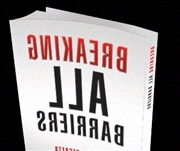Tutor HuntResources Law Resources
The Legal Students `breakthrough` Guide
As recommended by our own `Sir` Alex Aldridge
Date : 19/04/2012
Author Information

Uploaded by : Diana
Uploaded on : 19/04/2012
Subject : Law
Accept your fate
As adversarial types, law students aren`t short of gripes, but one trumps all the others: the requirement by universities and providers of the Graduate Diploma in Law (GDL) that students learn off by heart the names of the major precedent-setting cases of English and Welsh common law. "Given that practising lawyers aren`t expected to have all these cases in their heads, it doesn`t seem like a particularly productive use of time to memorise names," says Cat Pond, a student at the College of Law in London who completed her GDL last year, summing up the sentiment. "Maybe it would be more sensible for the law schools to provide us with a case list that we could take into exams."
Unfortunately for students, law lecturers tend to have little time for such arguments. "Medical students have to remember the names of different bits of the body; history students have to do the same with kings and queens` names; law students have to know the names of cases - it`s not that much to ask," says Steven Vaughan, director of undergraduate studies at Cardiff Law School. "Far better to be able to write R v Wilson (1996)," he continues, "than `the one where the man branded his initials onto his wife`s bum`".
Apply rather than unload
"Often students feel cheated if they don`t have chance in an exam to get across all the little details they have learned during their revision. They really have to fight that," says the head of Kaplan Law School, Giles Proctor.
Proctor is keen to impress that memorisation is just the first step. "What students are really being tested on in exams is their ability to analyse and evaluate. They need to ask themselves what the law is actually trying to say, and show appreciation of the fact that an issue is often a shade of grey rather than black and white," he adds.
Realise that time limits are part of the challenge
A common source of frustration among law school lecturers is students` tendency to underestimate the seriousness of failing to complete an exam. "It really is surprising how many students miss out whole questions on their exam papers, particularly on the Legal Practice Course (LPC) where there are a lot of short questions designed to emulate situations faced by lawyers in private practice," recounts Paul McConnell, LPC course leader at the College of Law`s Birmingham branch.
And contrary to what some may think, if a student doesn`t finish an exam in time there really is nothing they can do to make it better. "For the record, writing a little note at the end of your paper to say sorry that you ran out of time, signed with a smiley face, doesn`t make a difference," says Cardiff Law School`s Vaughan.
Select a law school that plays to your strengths
The way law students are assessed differs between institutions. For example, certain LPC providers, such as the College of Law, prefer open book exams; others, like BPP Law School, veer the other way. Another variable is exam lengths. As I explained earlier this week on my blog, Bar Professional Training Course (BPTC) students at City University have recently expressed dissatisfaction about the fact that they are allowed just three and a half hours to complete their opinion writing exam, while their counterparts at Northumbria University get a near-transatlantic flight length five hours.
K
eep your head during oral assessments
The capacity of exams to make people behave weirdly is at its most pronounced during the advocacy tests LPC and BPTC students must undergo. Assessors say coming across as jittery is as much of a danger as appearing overly keen to be seen as calm and in control. A City University BPTC tutor told me a great story about a student who brought a plate of biscuits into his oral `conference skills` assessment and offered it to the actor playing the role of the client. "Nervousness can manifest itself in strange ways," reflected the tutor.
The requirement that students "establish good rapport" with the `client` during the oral LPC assessment, and "maintain rapport throughout interview" while remaining "attentive, understanding, showing empathy, and maintaining appropriate eye contact" is enough to put even the calmest individual on edge. "It`s quite unnerving - and also rather subjective," says Pond.
Of course, for some students - particularly the wannabe barristers - the oral assessments are what law is all about. "I really enjoy them," says Jack Harris, a BPTC student at City University. His advice to those who don`t? "It helps if you have some previous experience of public speaking."
Be ready for the unexpected
Last week a fire alarm went off two thirds of the way through the three-hour business law and practice exam at Liverpool John Moores University. The opportunity the students had to speak to each other outside the exam hall after they were evacuated meant that they weren`t allowed to return to their papers, and the Solicitors Regulation Authority (SRA) consulted by the university for advice. Some of the students affected feared they might be required to resit, and a student who had been in the exam told me that she felt "annoyed and in limbo." Happily, though, having considered the matter, the SRA have decided to upscale students` marks using what they describe as "a complicated mathematical formula to ensure all are treated fairly".
This resource was uploaded by: Diana
